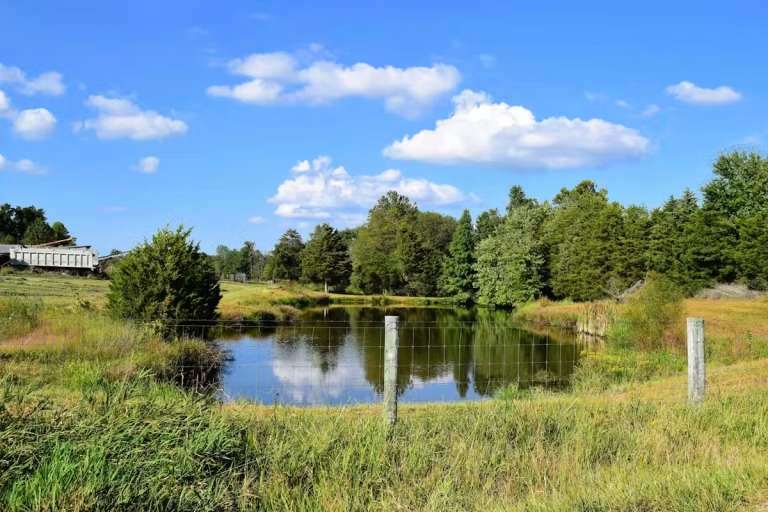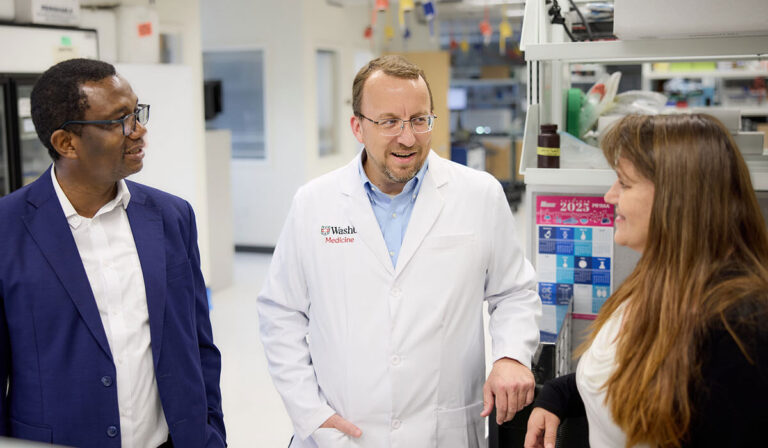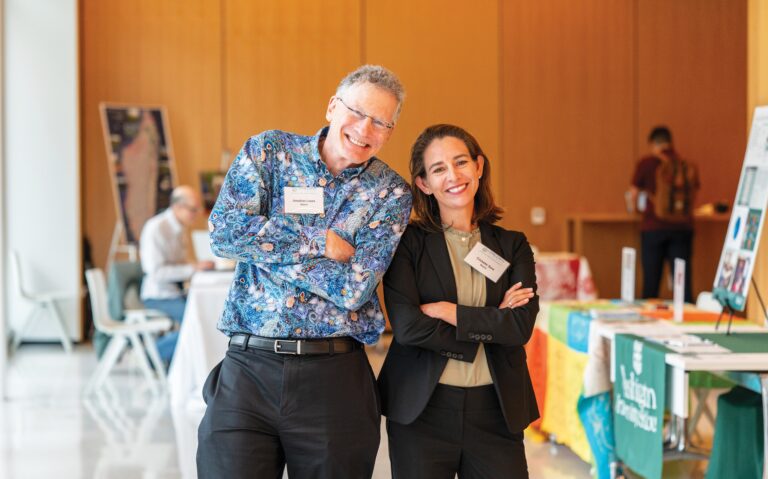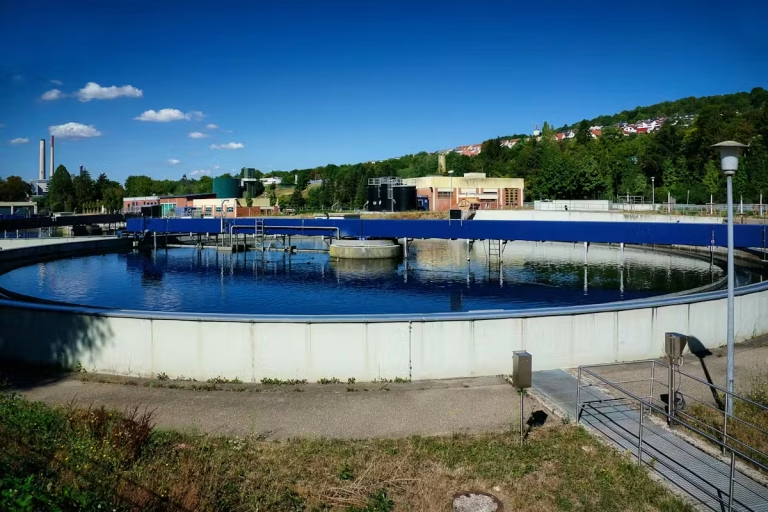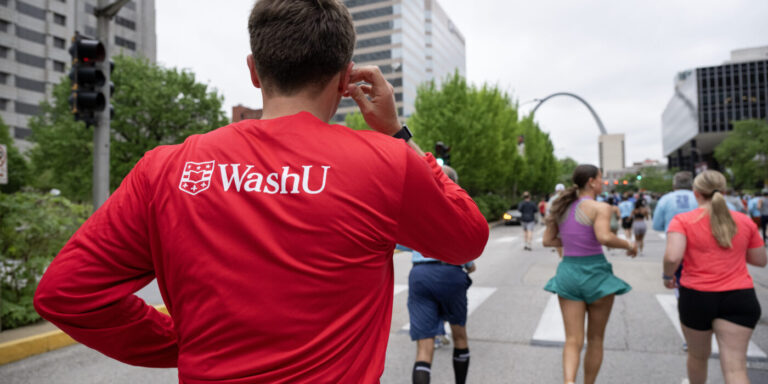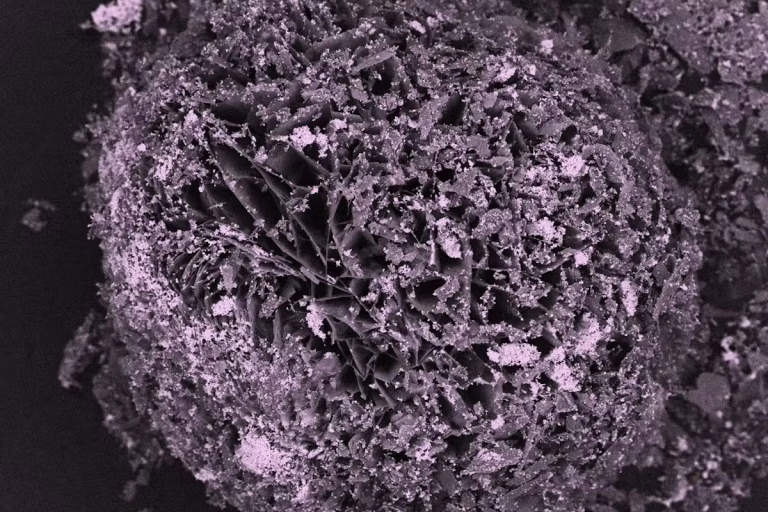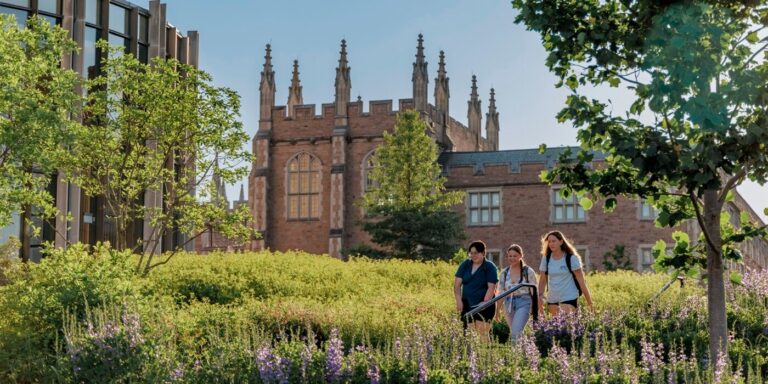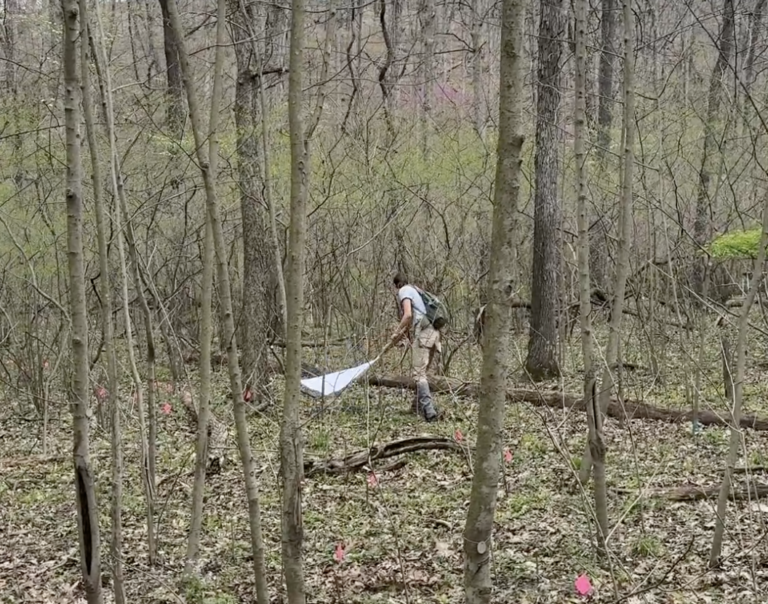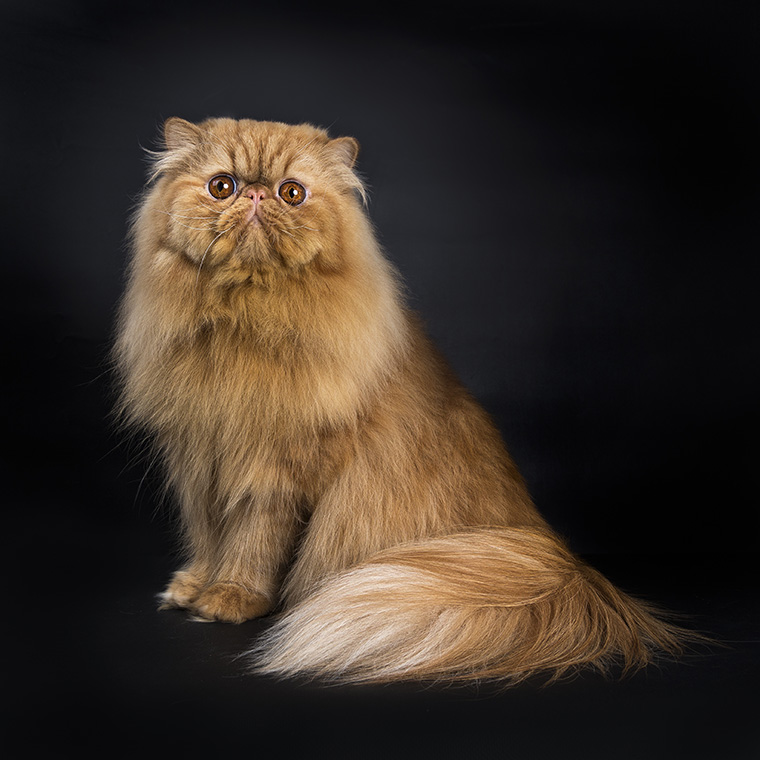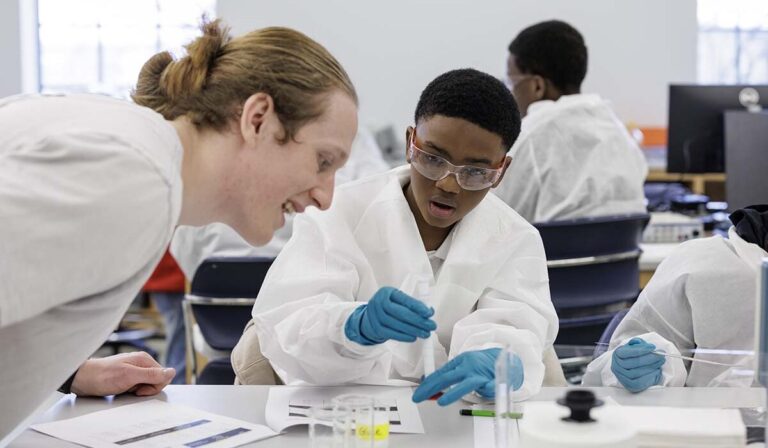Removing selenium from water takes iron strength
Daniel Giammar’s lab takes two steps toward removing contaminant from water
A faster route to eliminating parasitic infection endemic to Africa
In a clinical trial, researchers find moxidectin, a new medicine for river blindness, also works for lymphatic filariasis
Global biodiversity begins at home with the Living Earth Collaborative
Combining the forces of WashU, the Missouri Botanical Garden, and the Saint Louis Zoo, the Living Earth Collaborative works to protect the plants and animals of the world — for their sake and ours.
Electrochemical innovation offers chemical-free solution to assist in wastewater reuse
Kaichao Yang and Zhen He developed an electrochemical process that softens water, disinfects pathogens and benefits reverse osmosis systems used for advanced water treatment
WashU partners with leading St. Louis recreation organizations
As part of its “In St. Louis, For St. Louis” commitment, WashU is supporting several organizations focused on outdoor recreation.
New nucleation to advance climate resilience and clean energy technologies
A new study led by researchers at Washington University in St. Louis investigates an innovative method for capturing carbon dioxide (CO₂) while recovering nickel (Ni), a critical metal for clean energy technologies.
Inspired by Nature
Despite being in the beating heart of St. Louis, Washington University has long been entwined with its natural surroundings.
Meet the undergrad who discovered St. Louis County’s first longhorned tick
Undergraduate researcher Sam Ko has been studying ticks for the last year of her college career. Her legacy will be confirming the arrival of a tiny invasive species raising big concerns.
Copycat evolution
Research reveals convergent evolution between domesticated species, a phenomenon that has received little previous attention
Researcher for a Day: St. Louis children get up-close look at cutting-edge science
Middle school students from Central Middle School have joined the quest with WashU engineer Marcus Foston: Can we produce alternatives to plastic from renewable sources?
